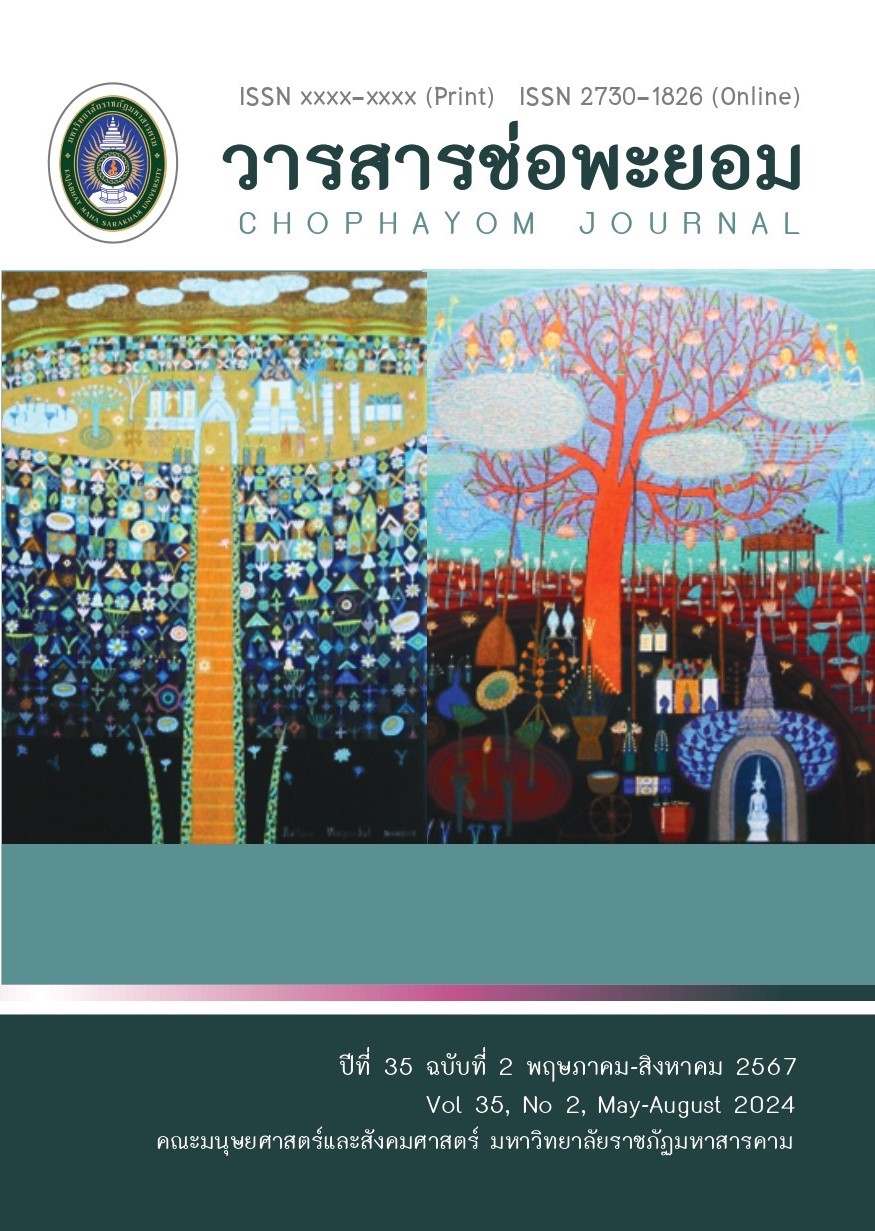A Self-Reflection of Intercultural Interaction with European People
Keywords:
European culture, intercultural interaction, self-reflectionAbstract
As a Thai people, I admit that I gained very little knowledge of European culture and who are European people. This may be because a travel to European countries and the business transaction with European people are difficult when comparing with Asian Countries. However, it is now important for Thai people to know more about European people how to interact with them in the globalization era. In order to contribute my direct experience of intercultural interaction with European people, a self-reflection of intercultural interaction may allow us to gain a better understanding of European people. The self-reflection provides direct experience with situations, such as education, academic conferences and multicultural workplaces. This academic paper reflects the author’s experience of interacting with British people, German people, Polish people and Romania people. At the end, pedagogical implications with European people are also given in order to prepare Thai people before having the intercultural interaction with European people. It is expected that the discussion of this academic paper will be useful for EFL learners and Thai business people to gain better understanding of European people.
Keywords: European culture, intercultural interaction, self-reflection
References
Bazarovna, A. M. (2022). Developing inter-cultural competence of EFL learners. European journal of innovation in nonformal education, 2(2), 152-154.
Berger, C., & Calabrese, R. (2006). Uncertainty Reduction. Dans W. contributors, Communication Theory (pp. 9-20). Wikibooks.
Czerwionka, L., Artamonova, T., & Barbosa, M. (2015). Intercultural knowledge development: Evidence from student interviews during short-term study abroad. International Journal of Intercultural Relations, 49, 80-99.
Efthymiou, M., et. al. (2018). The impact of delays on customers' satisfaction: An empirical analysis of the British airways ontime performance at Heathrow airport. Journal of Aerospace Technology and Management, 11(1), 1-13.
Herbig, P., & Jacobs, L. (1996). Creative problem-solving styles in the USA and Japan. International Marketing Review, 13(2), 63-71.
Halualani, R. et. al. (2004). Diverse in name only? Intercultural interaction at a multicultural university. Journal of communication, 54(2), 270-286.
Hofstede, G. (2016). Masculinity at the national cultural level. In Y. J. Wong & S. R. Wester (eds.), APA handbook of men and masculinities (pp. 173–186). American Psychological Association.
Hult. F. M., & Kelly-Holmes, H. (2019). Spectacular language and creative marketing in a Singapore tailor shop. International Journal of Multilingualism, 16(1), 79-93.
Kilianska-Przybyło, G. (2023). Strategies employed for information transfer and relation building in intercultural communication–A cross-cultural study. East European Journal of Psycholinguistics, 10(1), 81-95.
Knobloch, L. K. (2008). Uncertainty reduction theory. Leslie A. Baxter, Dawn O. Braithwaite (eds.). In Engaging theories in interpersonal communication, (pp. 133-144). Sake Publications.
Kwasniewska, A., Thomas, K., & Baker, R. (2014). Are there crosscultural differences in emotional processing and social problem-solving?. Polish Psychological Bulletin, 45(2), 205-210.
Li, Z. X., & Huan, C. Y. (2019). Chinese and North American culture: A new perspective in linguistics studies. Linguistics and Culture Review, 3(1), 14-31.
Matveev, A. (2017). Intercultural Competence in organizations: A guild for leaders, educators and team players. Cham, Switzerland: Springer.
Neculaesei, A., & Tatarusanu, M. (2008). Romania–cultural and regional differences. Scientific Annals of the Alexandru Ioan Cuza University of Iasi, LV, 55(-), 198-204.
Spencer-Oatey, H., & Frankin, L. (2013). Spencer-Oatey, H., Işık-Güler, H., & Stadler, S. (eds.) In Intercultural communication: The Routledge handbook of discourse analysis (pp. 572-586). Routledge.
Sharma, H. (2018). Memes in digital culture and their role in marketing and communication: A study in India. Interactions: Studies in Communication & Culture, 9(3), 303-318.
Shaw, K. (2015). The influence of culture and customs on international business communications. Editorial Board Members, 14(9), 430-436.
Triandis, H. C. (2018). Individualism and collectivism. New York: Routledge.
Warsame, A. A. (2018). Determinants of class participation case study. European journal of business and social sciences, 6(11), 1-18.
Downloads
Published
How to Cite
Issue
Section
License
Copyright (c) 2024 Chophayom Journal

This work is licensed under a Creative Commons Attribution-NonCommercial-NoDerivatives 4.0 International License.






